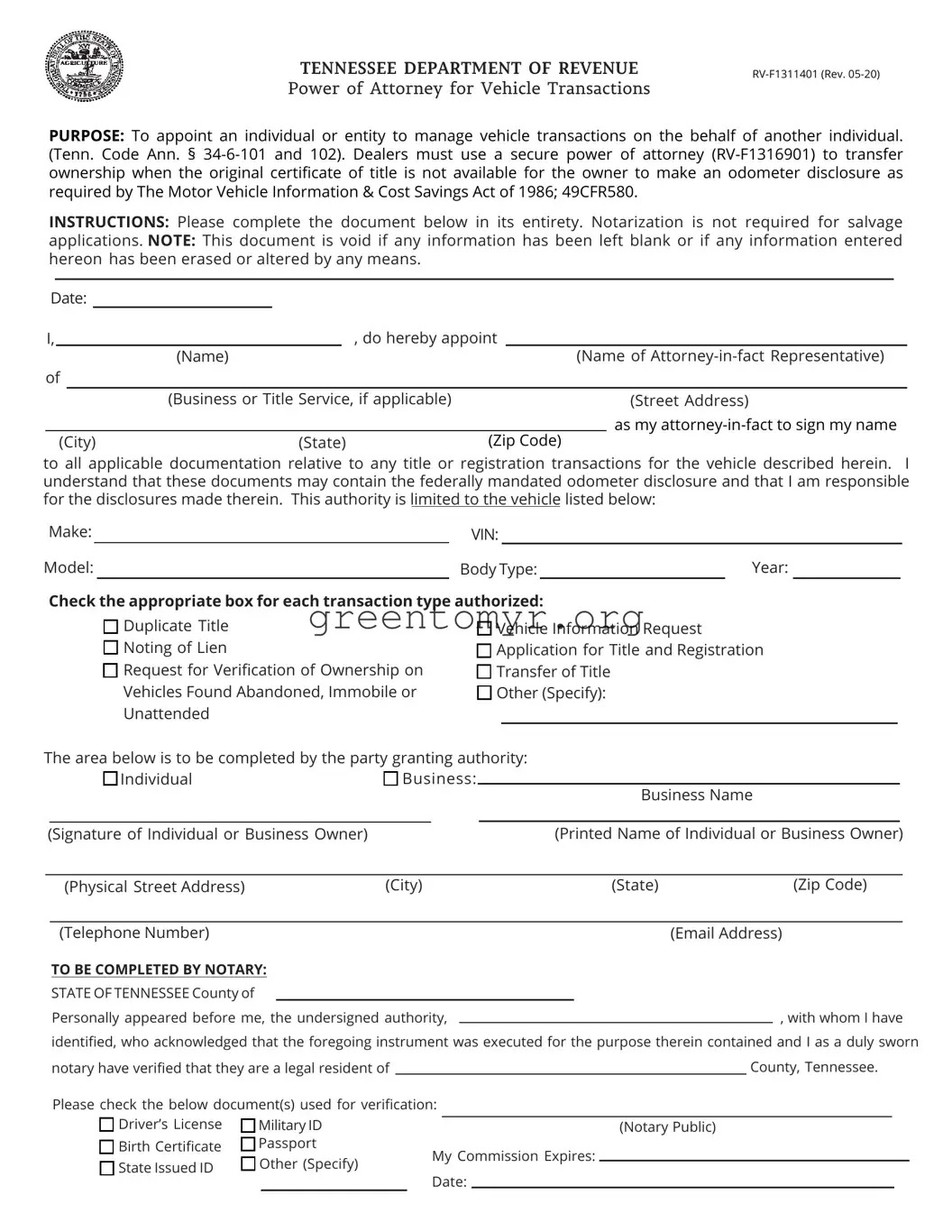When filling out the Vehicle Power of Attorney (POA) form RV-F1311401, individuals may encounter several common mistakes that can hinder the effectiveness of the document. Understanding these pitfalls can improve the accuracy and legality of the completed form.
First, one frequent error is omitting necessary information. Every section of the form is designed to capture specific details about the vehicle and the individual granting authority. Failing to provide items such as the vehicle identification number (VIN) or the correct name and address of the principal can invalidate the form.
Secondly, individuals sometimes select an incorrect or inappropriate agent. The form requires that the person designated has the capacity to act on behalf of the principal. Selecting someone who is not trustworthy or unable to fulfill the responsibilities can lead to complications in vehicle transactions.
Another common mistake is not signing or dating the form. Both the principal and the agent must provide their signatures. Additionally, including the date is crucial for establishing the timing of the authority granted. Without these, the form may not be accepted by relevant authorities.
Some people neglect to review the completed form for errors. Simple typos or inaccurate information can create issues that might delay or nullify the power granted. After completing the form, it is advisable to double-check all entries for clarity and correctness.
Others may forget to have the document notarized, if required. While notarization is not always necessary for a POA, being familiar with state requirements is important. Some jurisdictions may mandate a notary to enhance the document's legitimacy.
Additionally, individuals may not understand the scope of the powers being granted. The form should clearly articulate what actions the agent can take on behalf of the principal. If the powers are too broad or vague, it may lead to misunderstandings or misuse of authority.
In some cases, people fail to distribute copies of the executed form. After completing the Vehicle POA, it is important to provide copies to relevant parties. This includes the agent and any institutions that may need to verify the power of attorney, such as the Department of Motor Vehicles (DMV).
Finally, individuals sometimes overlook the importance of reviewing the form periodically. Changes in personal circumstances or authority may necessitate updates to the document. Regularly reviewing ensures that the Vehicle POA remains accurate and applicable to current situations.

